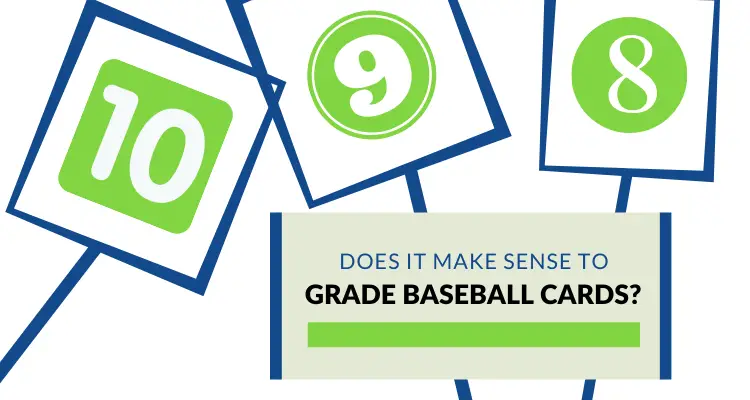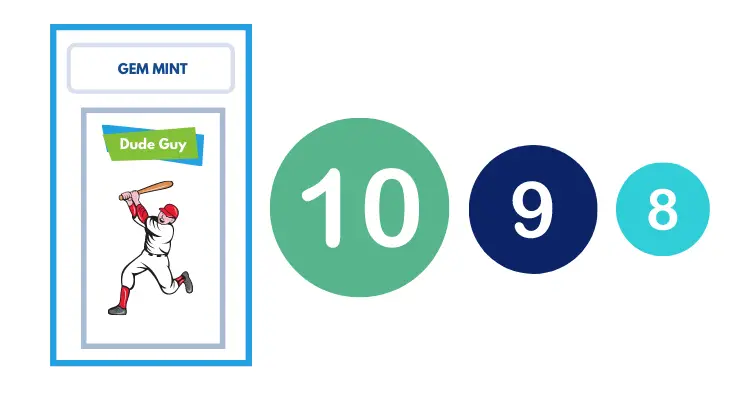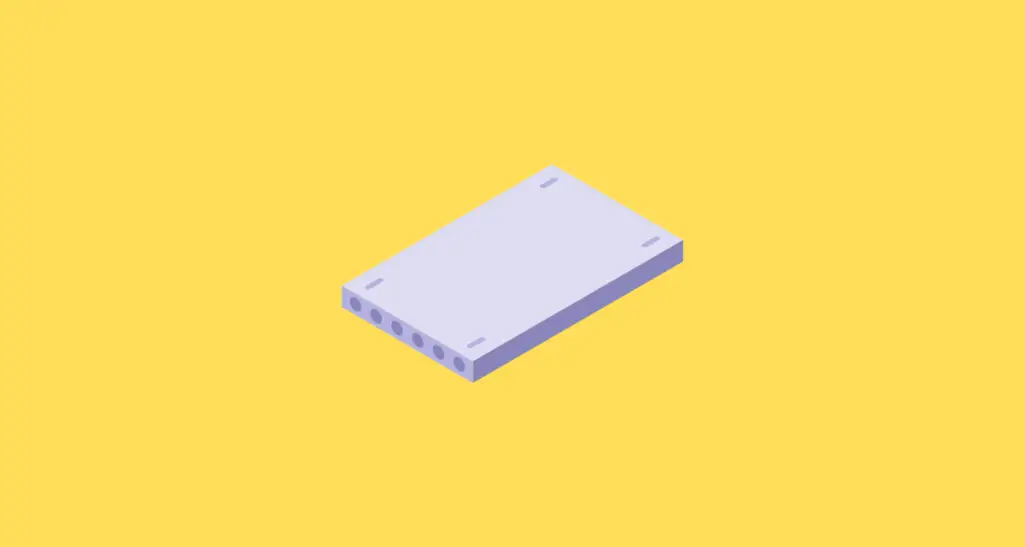 Ryan Barone (@ballcardgenius, Card Expert) is a lifelong member of the hobby. He has been quoted in PSA Magazine, and his content has regularly been mentioned in “Quick Rips” (the Topps RIPPED Newsletter) and across other hobby publications. hello@ballcardgenius.com; Last Time Ago LLC dba Ballcard Genius.
Ryan Barone (@ballcardgenius, Card Expert) is a lifelong member of the hobby. He has been quoted in PSA Magazine, and his content has regularly been mentioned in “Quick Rips” (the Topps RIPPED Newsletter) and across other hobby publications. hello@ballcardgenius.com; Last Time Ago LLC dba Ballcard Genius.
Affiliate Disclosure: This post contains affiliate links. As I am a part of the eBay Partner Network and other programs, if you follow these links and make a purchase, I’ll receive commission. As an Amazon Associate, I earn from qualifying purchases.
I recently posted a video about how easy it is to submit a card for grading, and while most people were thankful for the advice, there were a handful of comments about grading and PSA being a scam, and disbelief that it costs $25 to grade a single card.
While I totally understand why many people feel that way, I don’t totally agree.
My thoughts can be summed up by simply saying PSA isn’t a scam; it’s a business.
@ballcardgenius Replying to @user447071 #greenscreen Here is a quick rundown to hopefully kick you off on the right foot with the basics of grading.
♬ original sound – ballcardgenius
First, We Are Missing a Step in the Grading Process
Just like a home inspector would look over a house from top to bottom, or a mechanic would diagnose an issue with a car, PSA is giving their expert opinion on the condition of your trading cards, and there is a cost.
The problem is, and where many people have gripe is that in other related service businesses, the second opinion is not only an option, but an expected action.
For example we are going through some issues with our house, and have had a number of different professionals come out and take a look. After considering everyone’s thoughts and input, we selected the contractor that we thought will be best for the job based on our understanding of the issue, cost, time to completion, and more.
But in card grading, we as collectors and card buyers/sellers don’t really have that luxury. So, we take our cards, look them over ourselves, and send them in.
News flash, though, we aren’t professionals.
Yes we might be expert collectors, and we have eyes, but we aren’t professional graders, and we also have attachment. As the owner of the card, it’s easy to look at them through PSA 10 colored glasses.
Thus, when we finally get our cards back from PSA and they’ve received an 8 or 9 and not that coveted gem mint 10, it’s frustrating. Or, we do get that 10 but the card we chose to send in probably shouldn’t have been graded in the first place, and thus it’s not worth much more than the price to grade.
So, grading is not a scam. Every card won’t be a 10, and frankly, the vast majority of cards shouldn’t be submitted in the first place. We are missing a big step; a service that can truly help and guide people toward grading – or not – but giving insights both into condition and the estimated value if graded at different levels.
Second, Upcharges Could Be Better
@ballcardgenius Replying to @catmanjoe720 #greenscreen great question. Here is my understanding of upcharges and why when it happens is both good and bad.
♬ original sound – ballcardgenius
Second, any time you “buy” something at a price and service level, only to have the company come back and say, well, actually you’re going to have to owe more, it might feel like a scam.
I just wrote a post on upcharges and declared values, but as a quick summary, when you submit a card for grading, you choose a service level based on how quickly you want the card returned to you (turnaround time) but also the declared value (which is an estimate of how much the card will be worth after it’s graded).
What happens though, because we are human, we declare a value for a card thinking it’s going to be a 9, but then it ends up being graded a 10.
As a result, the declared value might increase hundreds if not thousands of dollars. And, because each service level has a declared value threshold, the card might be bumped up a level, which is when PSA will reach out saying you’ve been upcharged.
Because of this, along with the fact that you don’t get refunded if the opposite happens (meaning if you over value the card upon declaration and the card is graded less).
But, grading is not a scam. Declared value dictates the insurance cost put on a card when in PSA’s possession. Meaning, if something happens to the card or if it gets lost in the mail on its way back to you, the card can only be covered up to its declared value. And, while, I’m not sure, I don’t think PSA enforces this on every little instance.
Could the process be cleaner, though? Oh yes.
Third, Card Grading is All Subjective
Last but not least, grading is done by humans, not machines. We, as humans are not perfect, even as professionals. Just think about umpiring in baseball. One umpire will watch a borderline pitch and think it’s a strike, while another umpire might see the same pitch as a ball. Or, even worse, the same umpire might see that pitch as a strike in one at-bat and a ball in the next. Human.
Same thing happens in grading. One card that looks to be a sure gem mint 10 gets a 9, while a questionable 9 gets a 10. Or, a card might be graded as a 9 and the owner cracks the card out of the slab and submits it again and boom, it’s a 10.
Does that make grading a scam? No, it just makes it frustrating. But at this point, we all know how grading is done, and the risk we are taking by sending our cards in.
Given all of this, card grading is a choice, and there is plenty of card collecting that can happen without it. It’s not perfect, but let’s not also forget that plenty of people benefit from it as well. It’s really about the risk and reward, which isn’t much different than a lot else that goes on in the hobby.



